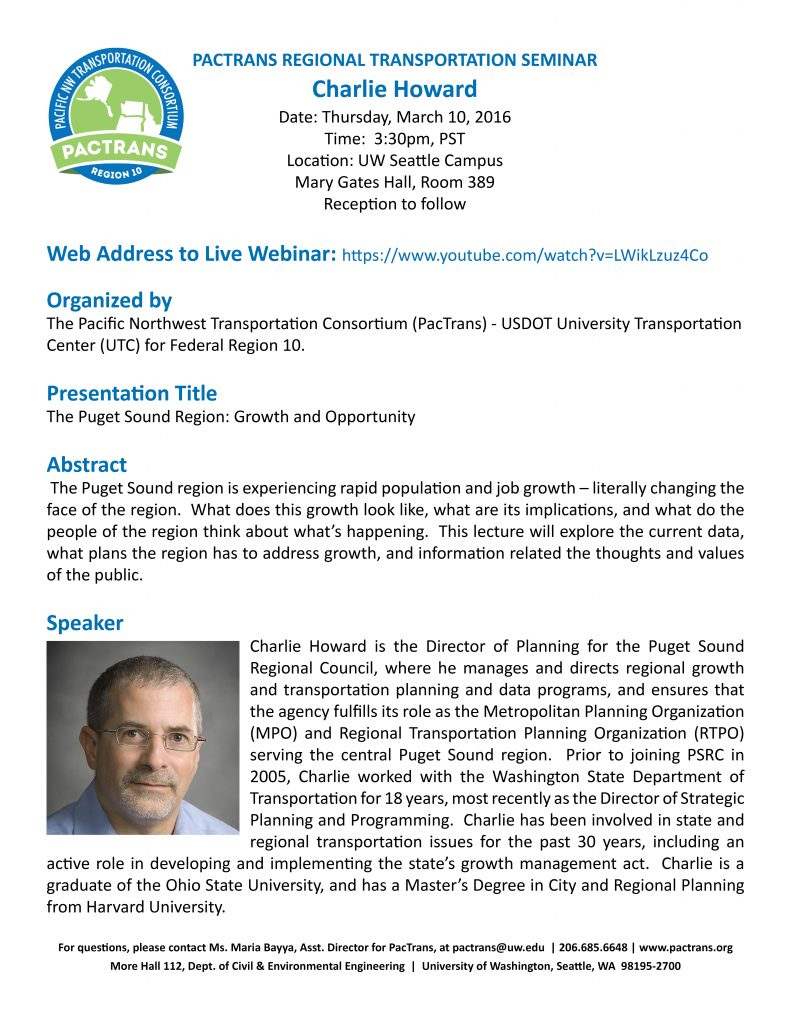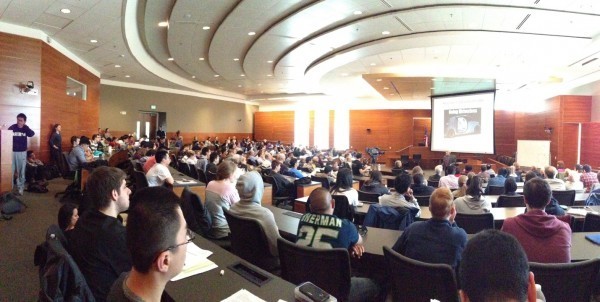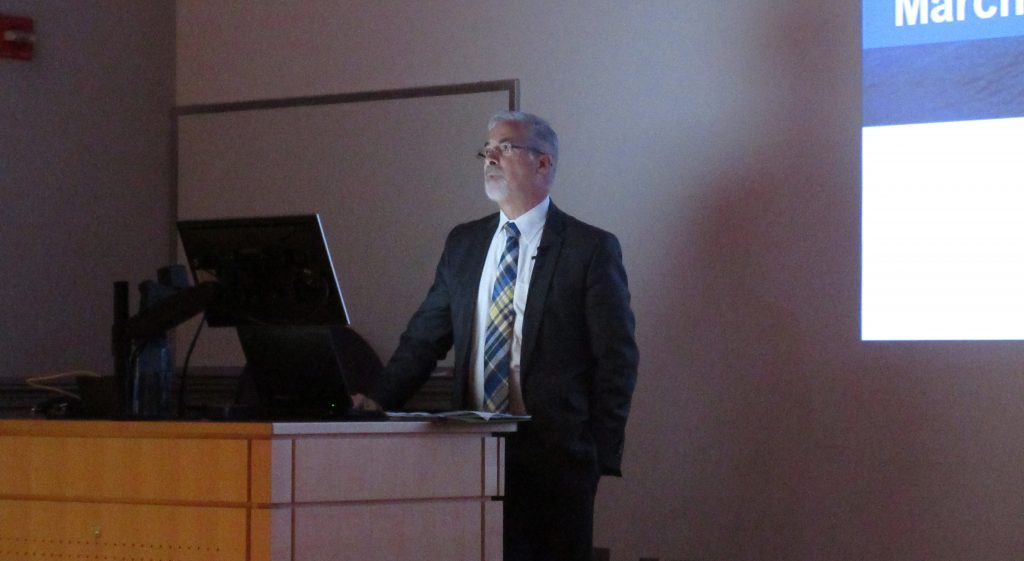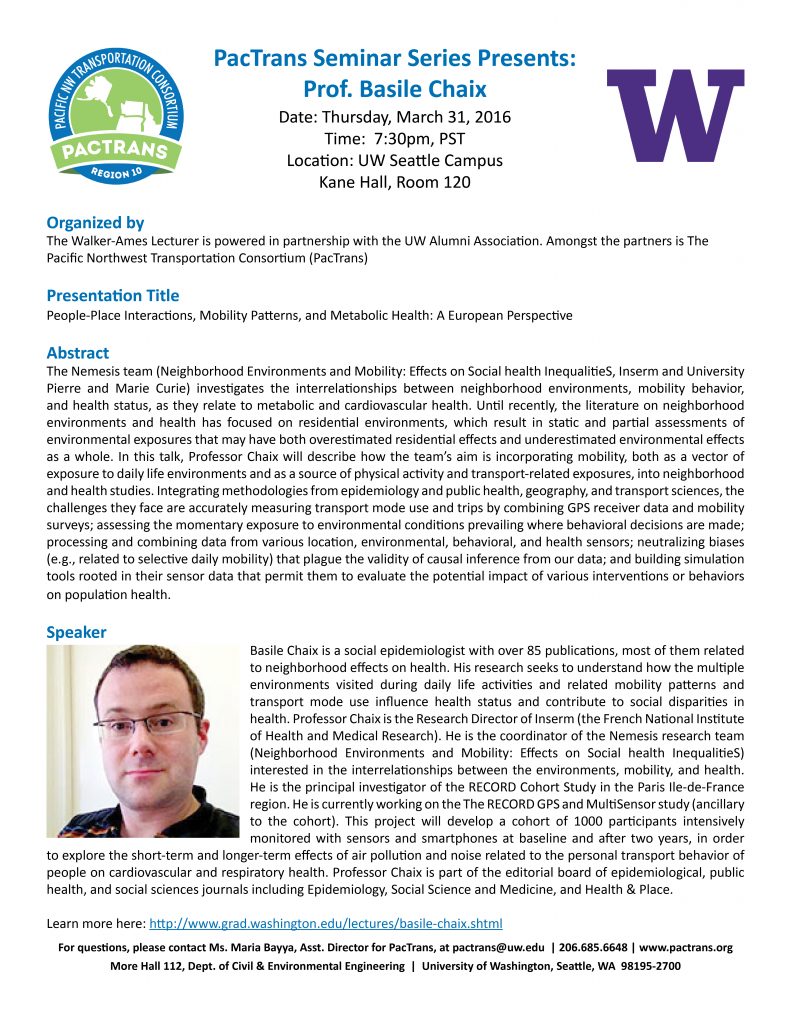Seminar
-
April 15, 2016
Seminar: Dr. Daniel Sperling Speaks to CEE Transportation Students and Faculty
TRANSPORTATION REVOLUTION: RADICAL CHANGES ON HOW WE TRAVEL
-
April 01, 2016
PacTrans Welcomes Walker-Ames Scholar Dr. Basile Chaix
On the evening of Thursday March 31, 2016, a crowd of about 175 people, choosing to forego the first truly nice Seattle spring evening, packed into the Kane Hall lecture auditorium on the University of Washington’s Seattle campus to hear from Basile Chaix, at this months Walker-Ames Lecture. Read More
-
March 14, 2016
PacTrans Seminar Series: Charlie Howard Seminar Sets a Great Backdrop for Current Region Transportation Climate
Yesterday afternoon, Thursday March 10, Charlie Howard, Director of Planning at the Puget Sound Regional Council (the Puget Sound Region’s MPO), gave a great PacTrans sponsored talk to over 100 students, faculty/researchers, and industry practitioners. Read More
-
PacTrans 2016 Winter Seminar Series Presents: Basile Chaix
-
March 09, 2016
PacTrans 2016 Winter Seminar Series Presents: Charlie Howard
If you would like to watch Charlie Howard’s seminar tomorrow but are not able to attend in person, go to this web address: https://www.youtube.com/watch?v=LWikLzuz4Co
 « Previous
1
…
11
12
13
14
15
16
Next »
« Previous
1
…
11
12
13
14
15
16
Next »





